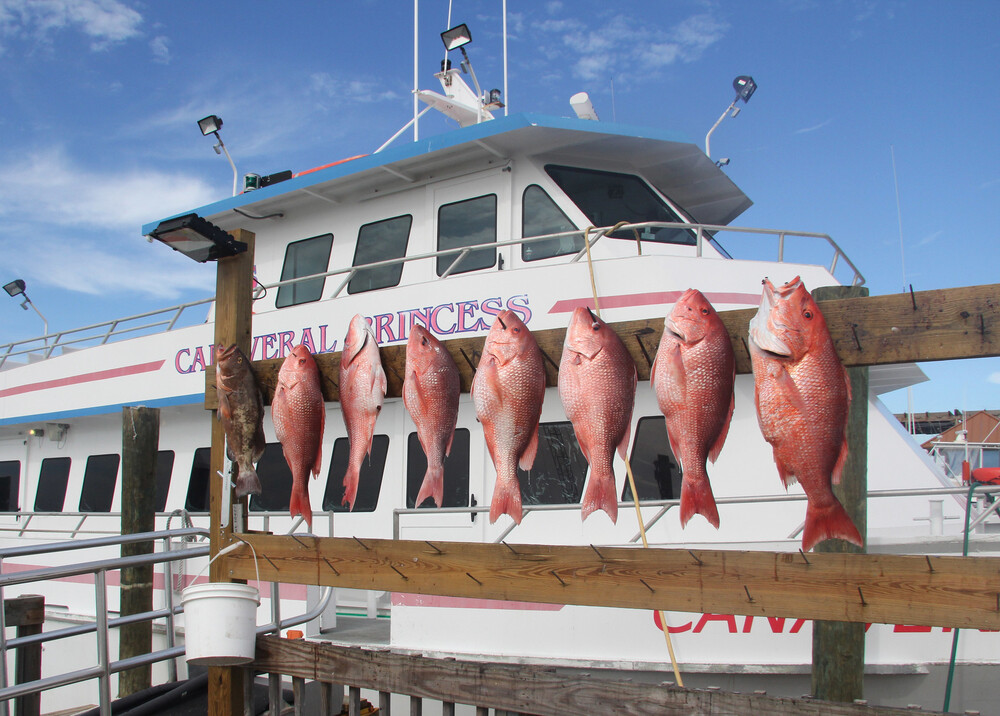
There’s nothing quite like the fishing in Northeast Florida — Mayport seafood is a thing because of the great habitat and biodiversity — but change is happening and America’s fishery management system isn’t built to adapt quickly.
A common refrain coming out of the National Saltwater Recreational Fisheries Summit was that the pace of the status quo isn’t going to get the job done. The summit was held in Washington, both in-person and online.
One way to try to be more nimble is with better planning, leading to the creation of the East Coast Climate Change Scenario Planning Initiative, a joint project of several bodies including NOAA Fisheries, the South Atlantic Fishery Management Council and the Atlantic States Marine Fisheries Commission. Among the members of the group leading the initiative is Karla Gore, a Florida-based biologist for NOAA Fisheries Southeast Regional Office.
“What we’re doing with this initiative is looking forward into the future and trying to figure out how East Coast governance and fishery management issues are going to be affected by climate-driven changes in fisheries, with a particular focus on changing stock availability and distribution,” said Kiley Dancy, a fishery management specialist for the Mid-Atlantic Fishery Management Council.
“Our second objective with this process is to advance certain tools and processes that are going to provide us with additional flexibility and robust fishery management strategies which are going to continue promoting our goals of conservation and resilient fishing communities, but also allow us to address uncertainty in an era of climate change.”
There’s a lot of uncertainty about how various aspects of climate change will manifest in the coming years, and that uncertainty grows when you add in the variables of different East Coast fisheries. Fishery experts are trying to figure out which ideas could bring benefits and which ideas to avoid. They’re also working on not zeroing in on one idea or being overconfident in one prediction of the future.
“We want to keep in mind that we really do want concrete outputs on this project, so it’s not just an academic exercise,” Dancy said.
The bottom line, said Jon Hare of the NOAA Fisheries Northeast Fisheries Science Center, involves climate effects to distribution and timing, though regionally unevenly across the country.
“These are the two most relatable changes. We’ll hear comments across a number of people that distributions are changing, or the timing in which fish are coming into my area are changing,” Hare said. “Productivity changes are more subtle. A population’s ability to increase or decrease is changing. Species interactions are changing. What fish are eating is changing. The food available to them is changing, and then their habitats are changing.”
It comes down to a lot of physical changes driving a lot of biological changes in the fisheries. In that vein, habitat restoration specialists were thrilled when Congress passed the bipartisan infrastructure bill (H.R. 3684), which President Joe Biden signed into law in November.
“We’re going to be running competitive grant programs focused on habitat restoration and fish passage,” said Carrie Selberg Robinson, director of the NOAA Office of Habitat Conservation. “My team, all across our coastal states, are going to be standing ready to work with our partners to implement even more of this habitat restoration work across the country.”
Robinson called the habitat restoration funding “historic,” which will run for the next five years. Grant recipient announcements are expected in the next couple months.
A major reason why fishery management is so slow to change is that’s how they were structured through the cornerstone Magnuson-Stevens Fishery Conservation and Management Act, with a lot of opportunities for public comment and public involvement.
“I think to get to climate-resilient fisheries is going to take increased participation and increased voices to help management move faster and more broadly in that direction,” Hare said.
Even the scenario planning described by Dancy takes around two years from start to finish, though. She noted someone said in one of the scoping meetings that there should perhaps be two tracks for fishery management — the usual slow-paced and deliberate path, along with one built on fishers’ knowledge and local ecological knowledge that can pivot into action quicker.
For fishers, it means staying on top of shifting populations and what that means for catch allocations.
“Clearly, things are moving north, but the councils and NOAA Fisheries have been very slow to respond in a fair and equitable way,” said John McMurray of the American Saltwater Guides Association.
The bad news is allocation considerations in light of climate change adaptation are going to have to wait until those adaptations can be worked out.
“I don’t think we’re going to get down into the weeds of specific allocation discussions — certainly not talking about (fishery management plan)-level changes that we might expect in allocation,” Dancy said. “But I do think … we need to think about our governance strategy and how that is going to help or hinder our ability to adapt our allocations as needed.”



